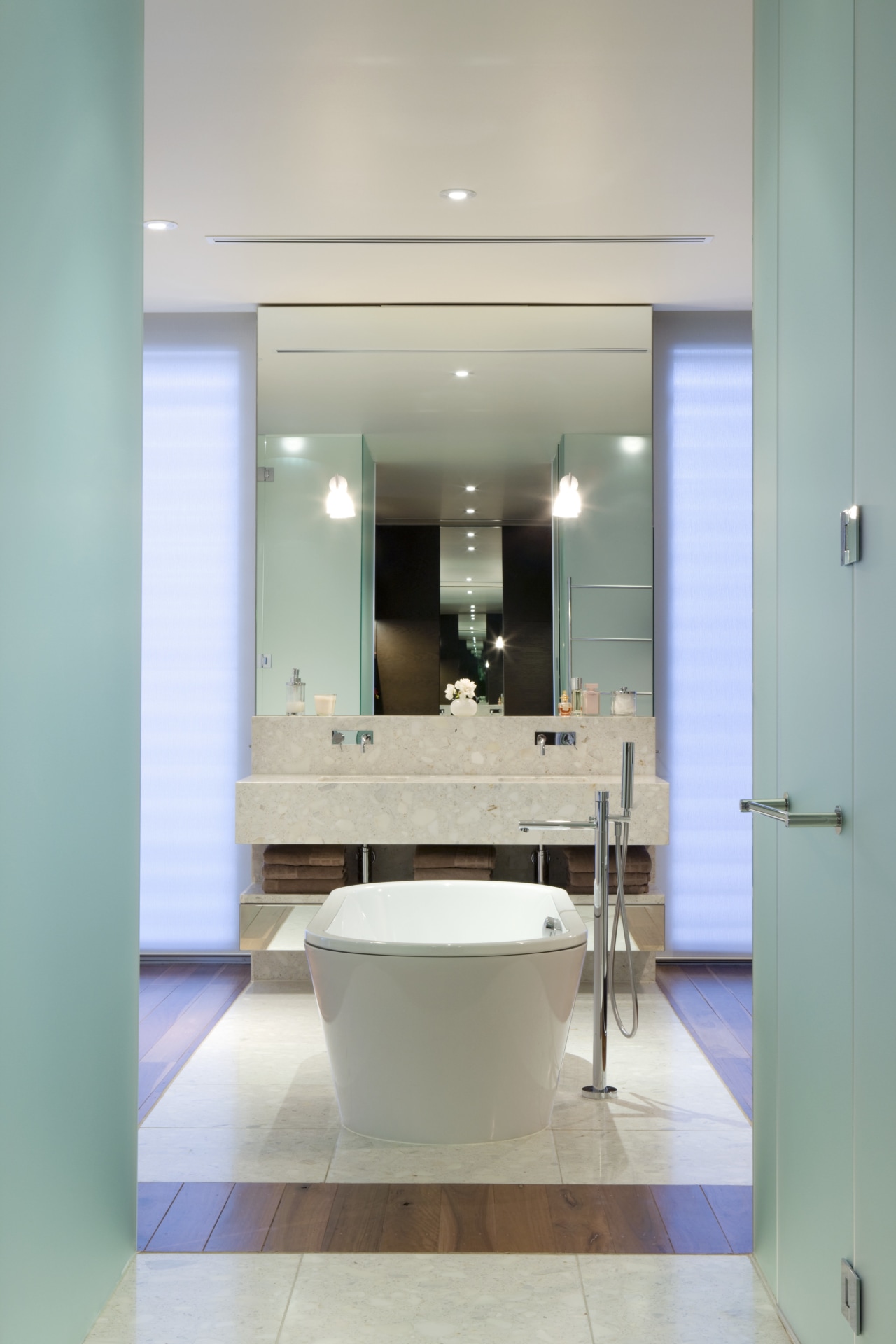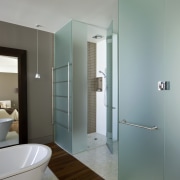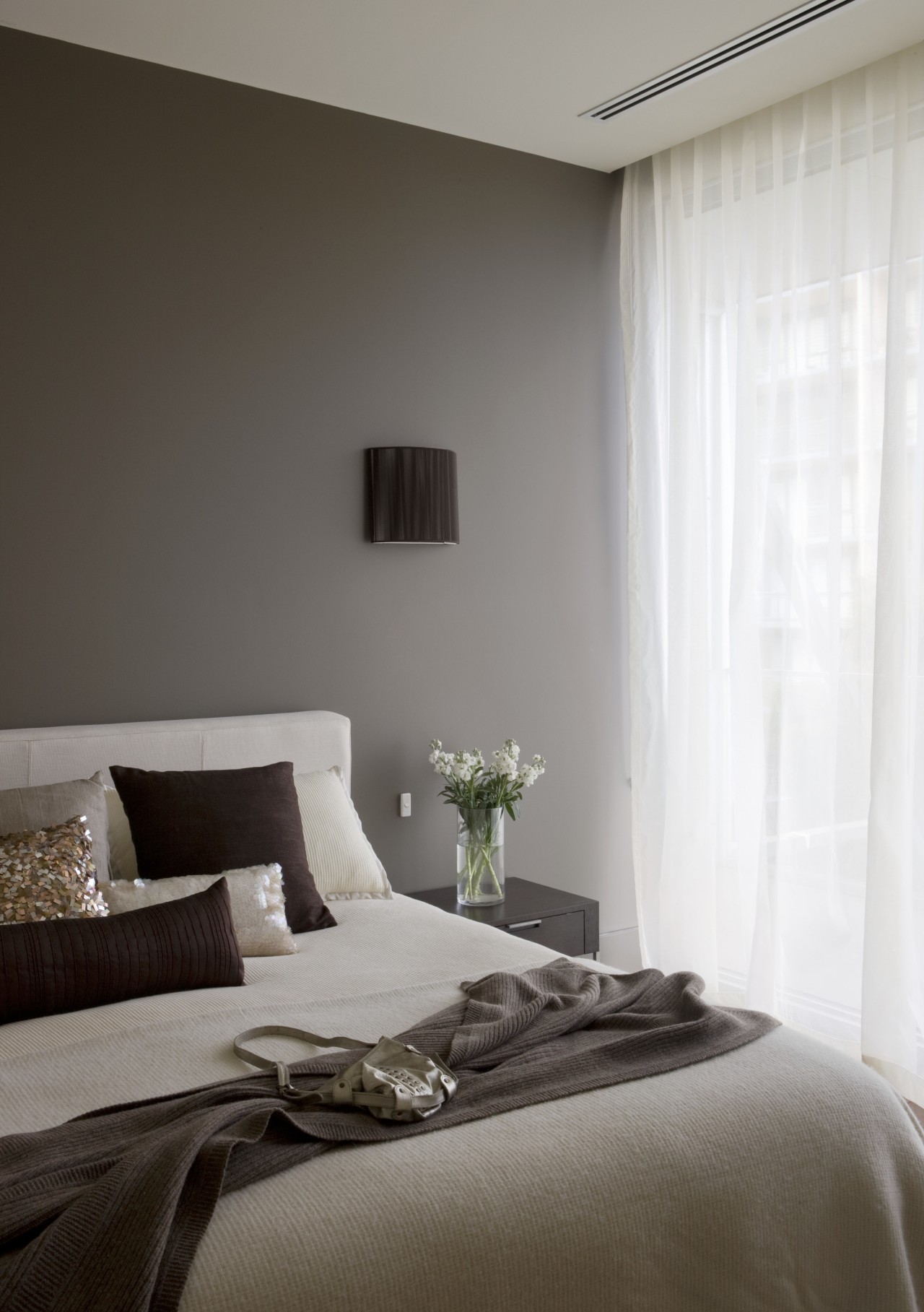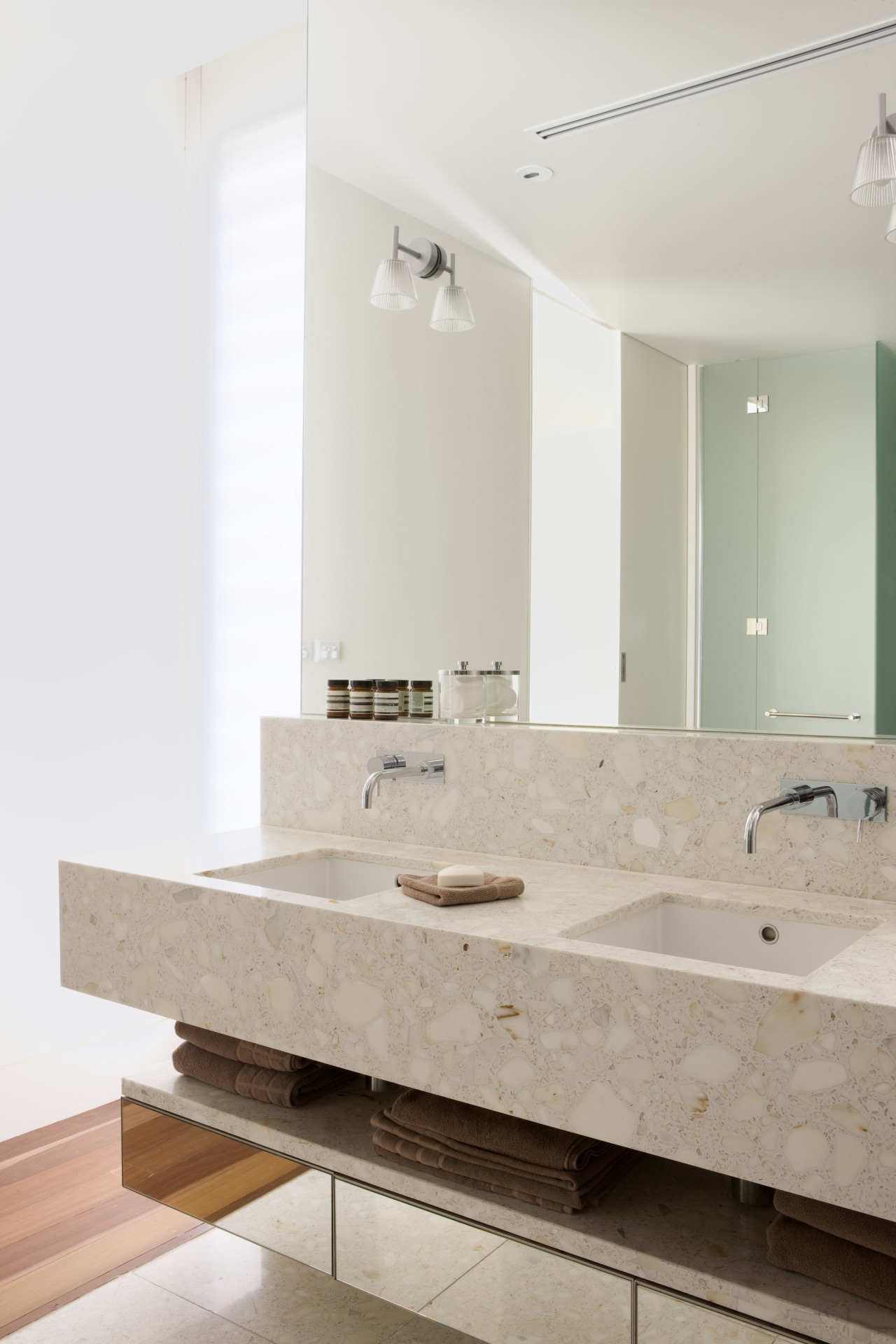Sense of the past
The central bathtub in this master suite helps to recreate an ambience from a more glamorous time when bathing was a leisurely activity

Strong visual statements, as well as more subtle elements, such as colours, textures and materials, can combine to recreate an atmosphere of indulgence more often found in a bygone era.
Interior designer Allison Jessup and architect John King transformed an old 1930s warehouse into a three-level residential apartment. Part of the owner's brief was to retain the scale of the original warehouse and to recreate the glamour of the era in the refurbished apartment.
To achieve this for the master suite on the top level of the building, they blurred the boundaries between bedroom and bathroom by creating one large, open space. This can be separated into two spaces by full-height, concealed sliding doors.
"The bathtub is a central feature of the design of the suite. It has been placed in the middle of the room to recreate the atmosphere of a past era when people had time for the indulgence of taking a leisurely bath," says Jessup. "The whole space is designed to be a room you want to spend time in, rather than just a place for a quick shower."
To link the two spaces, the timber floor in the bedroom extends into the bathroom. Under the bath, stone tiles, fitted flush against the timber to suggest a mat, extend along the floor. The tiles wrap up and over the vanity in slab form and create a splashback. This finishes below a ceiling-height mirror that is reflected in a second large mirror on the opposite wall of the bathroom.
"As well as creating a visual connection between the bath and vanity, the stone provides a practical surface in an area where water is likely to be splashed about," says Jessup.
The shower and toilet are in separate, private, translucent glass enclosures on either side of the entry to the dressing room. At night when lights are switched on inside the enclosures, they take on the appearance of large glass light boxes, creating a contemporary decorative element in the space.
Stone floor tiles in and between these areas help to balance the height of the mirror and vanity.
A recessed shelf provides towel storage and breaks up the front of the vanity. Below the shelf are three mirror-fronted drawers, while extra storage is provided in two large cupboards tucked behind each side of the vanity unit. These cupboards have pantry-style inserts that are pulled out from behind the mirror across the floor-to-ceiling windows.
Story by: Mary Webb
Home kitchen bathroom commercial design












